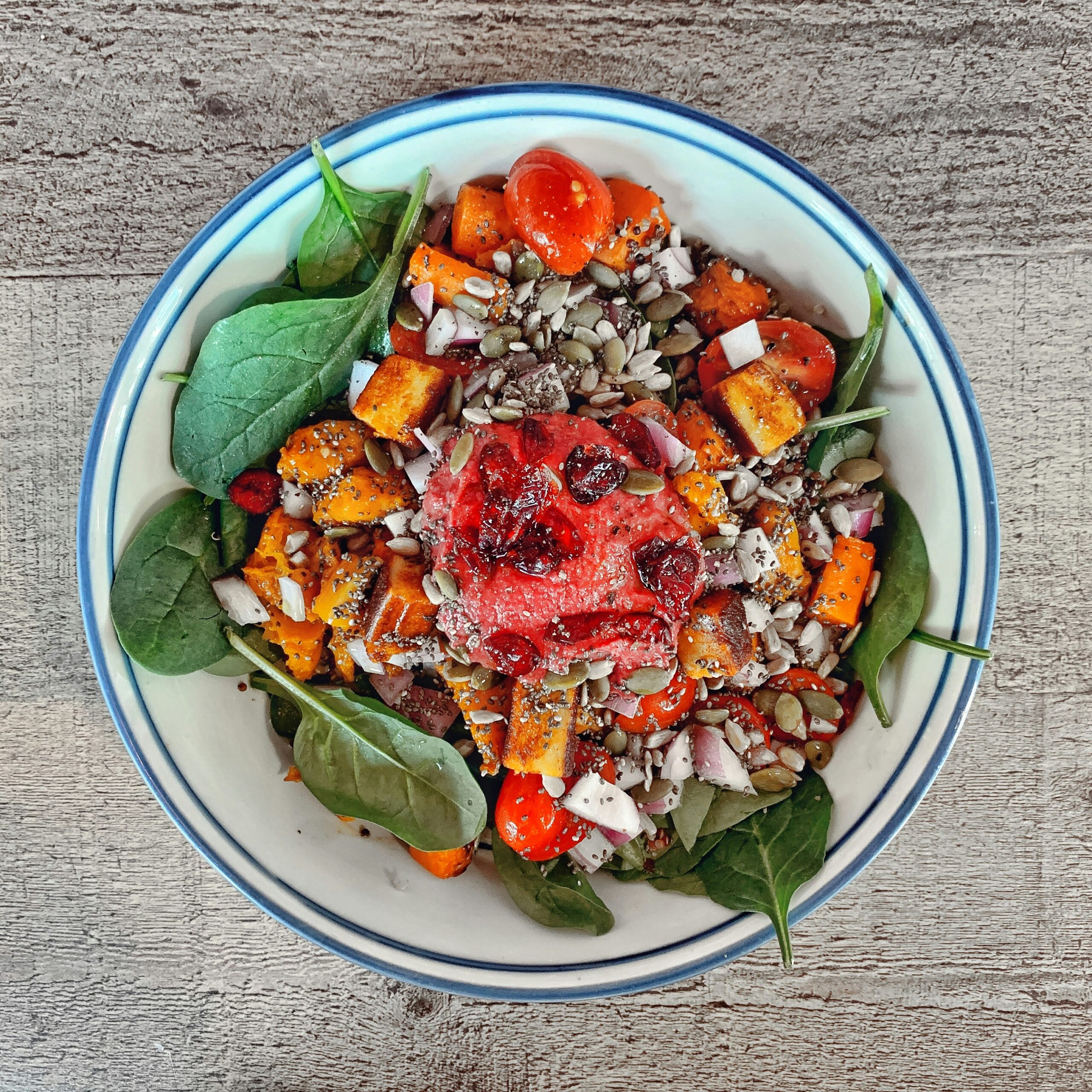In recent years, plant-based eating has gained popularity, and for good reason. A well-balanced plant-based diet can offer numerous health benefits, from improved heart health to better digestion and weight management. However, if you’re new to plant-based eating, it can feel overwhelming trying to navigate how to build nutritious meals without animal products. As a registered dietitian, I’m here to guide you through the basics of plant-based nutrition and how to get started on the right foot.
What is Plant-Based Eating?
Plant-based eating means focusing primarily on foods that come from plants: fruits, vegetables, whole grains, legumes (like beans and lentils), nuts, seeds, and plant-based alternatives to dairy and meat. Unlike veganism, which excludes all animal products, a plant-based diet emphasizes plants as the main source of nutrition, while allowing occasional animal products if desired.
This style of eating encourages you to make plants the star of your meals, providing your body with essential nutrients like fiber, antioxidants, and healthy fats.
Benefits of a Plant-Based Diet
Adopting a plant-based eating pattern can have a positive impact on overall health, including:
Heart Health – A plant-based diet is naturally rich in heart-healthy nutrients like fiber, antioxidants, and healthy fats, which help lower blood pressure and cholesterol.
Better Digestion – Plant foods are packed with fiber, which supports gut health, promotes regular bowel movements, and reduces the risk of chronic diseases.
Weight Management – Studies show that plant-based diets are associated with lower calorie consumption and a reduced risk of obesity.
Reduced Risk of Chronic Diseases – A plant-based diet has been shown to reduce the risk of developing type 2 diabetes, certain cancers, and other chronic conditions.
Key Nutrients to Focus On in a Plant-Based Diet
When transitioning to a plant-based diet, it’s important to ensure you’re getting all the necessary nutrients for optimal health. Here are some key nutrients to keep an eye on:
1. Protein
While animal products are a common source of protein, there are plenty of plant-based alternatives that offer high-quality protein. Incorporate these protein-rich foods into your diet:
- Legumes (lentils, chickpeas, beans)
- Tofu and tempeh
- Quinoa and whole grains (brown rice, oats, barley)
- Nuts and seeds (almonds, sunflower seeds, chia seeds)
- Plant-based protein powders (pea protein, hemp protein)
2. Vitamin B12
Vitamin B12 is mainly found in animal products, so it’s essential to supplement this nutrient on a plant-based diet. Lack of B12 can lead to fatigue, weakness, and neurological issues. Consider:
- Fortified plant-based milks, cereals, and nutritional yeast
- B12 supplements
3. Iron
Plant-based sources of iron (non-heme iron) are less easily absorbed by the body than animal-based sources (heme iron). To boost absorption, pair iron-rich foods with vitamin C-rich foods like citrus, bell peppers, or broccoli.
Good plant sources of iron include:
- Legumes (lentils, beans, peas)
- Tofu and tempeh
- Spinach and kale
- Quinoa
- Fortified cereals
4. Omega-3 Fatty Acids
Omega-3 fatty acids are crucial for brain and heart health. While they are often found in fish, there are plant-based sources of omega-3s:
- Chia seeds, flaxseeds, and hemp seeds
- Walnuts
- Algal oil supplements
5. Calcium
If you’re eliminating dairy, ensure you’re still getting enough calcium for bone health. Many plant-based milks and juices are fortified with calcium, but you can also include:
- Leafy greens (collard greens, kale)
- Tofu and tempeh
- Fortified plant-based milks
- Almonds
- Chia seeds
Tips for Starting a Plant-Based Diet
1. Start Slow
You don’t have to go all-in immediately. Begin by adding more plant-based meals to your week and gradually decreasing your animal product intake. This will give your body time to adjust and help you find plant-based meals you enjoy.
2. Focus on Whole Foods
Whole plant foods like vegetables, fruits, whole grains, and legumes should make up the majority of your meals. While plant-based processed foods (like plant-based burgers and cheeses) are convenient, aim to prioritize whole, minimally processed foods for optimal health.
3. Plan Balanced Meals
A balanced plant-based meal should contain:
- Protein (lentils, tofu, quinoa)
- Healthy fats (avocado, olive oil, nuts)
- Complex carbohydrates (sweet potatoes, brown rice, whole-wheat bread)
- Fiber (vegetables, fruits, legumes)
4. Experiment with New Recipes
A plant-based diet is a wonderful opportunity to explore new flavors and cooking techniques. Try new fruits, vegetables, whole grains, and plant-based alternatives to find what you enjoy.
5. Stay Hydrated
Drinking plenty of water is key to digestion, energy, and overall health, so be sure to stay hydrated throughout the day.
Final Thoughts
Plant-based nutrition can be a delicious, health-promoting choice that supports both short-term and long-term well-being. Whether you’re looking to improve your health, boost your energy, or reduce your environmental impact, transitioning to a plant-based diet is a rewarding journey.
Start by making small changes, focus on variety and balance, and soon you’ll feel the benefits of plant-powered living.
Need one-on-one diet and health support?
Get the best personalized, comprehensive care that addresses root causes instead of symptom management.
- Improve your quality of life
- Achieve your healths goals
- Pay as little as $0 with insurance



